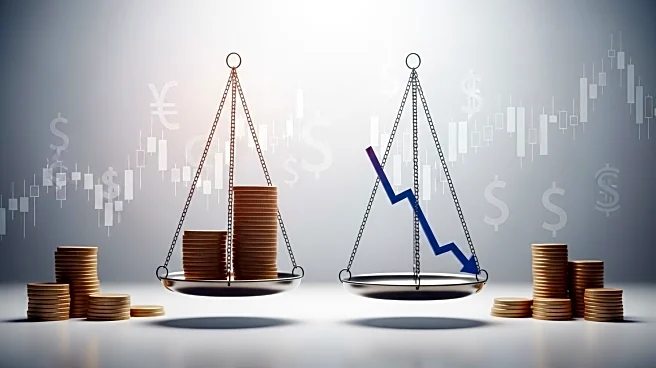What's Happening?
Universal Corporation (UVV), a key player in the Consumer Defensive sector, is under scrutiny for its financial health despite offering attractive dividend yields. The company's fiscal 2025 results show a debt-to-equity ratio of 85.10%, indicating significant leverage and potential refinancing risks in a high-interest-rate environment. Operating income increased by 5% year-over-year to $232.8 million, but net income fell to $95.0 million from $119.6 million, with diluted earnings per share dropping 21% to $3.78. This decline is attributed to non-operational costs, likely related to debt servicing. UVV's liquidity appears sufficient for short-term obligations with a cash balance of $260.1 million, but long-term solvency depends on stable cash flows.
Why It's Important?
The financial health of Universal Corporation is crucial for investors seeking income from high-yield stocks. The company's 78.5% dividend payout ratio for fiscal 2025, which is above the sector average, suggests a strong commitment to shareholder rewards. However, this high ratio leaves little room for error, especially if earnings continue to decline. The recent quarterly free cash flow shortfall of -$217.01 million raises concerns about liquidity and operational efficiency. Investors must consider the risks associated with UVV's high leverage and earnings volatility, which could impact its ability to maintain dividend payouts.
What's Next?
Universal Corporation's future financial stability will depend on its ability to manage debt and maintain consistent cash flows. Investors should monitor economic conditions and earnings trends, as these factors could influence the company's dividend policy. A potential dividend cut may occur if earnings continue to contract or if economic conditions worsen. Income-focused investors are advised to assess the risks carefully and consider diversifying their portfolios to mitigate potential losses.
Beyond the Headlines
The situation with Universal Corporation highlights broader issues in the Consumer Defensive sector, where companies often balance high dividend payouts with financial health. The company's high leverage and earnings instability reflect challenges faced by many firms in maintaining shareholder rewards while navigating economic uncertainties. This case underscores the importance of evaluating financial metrics beyond dividend yields when making investment decisions.










